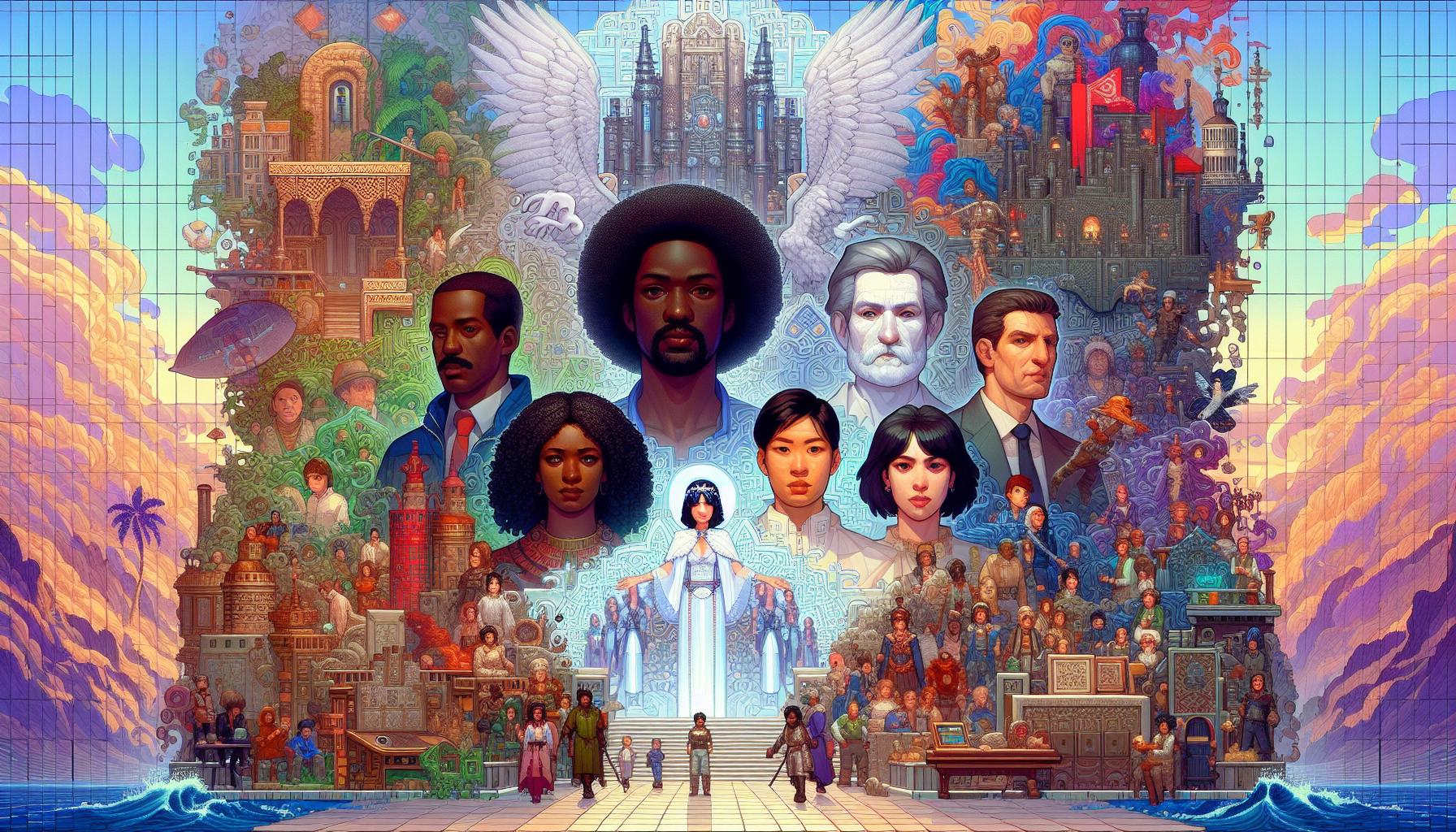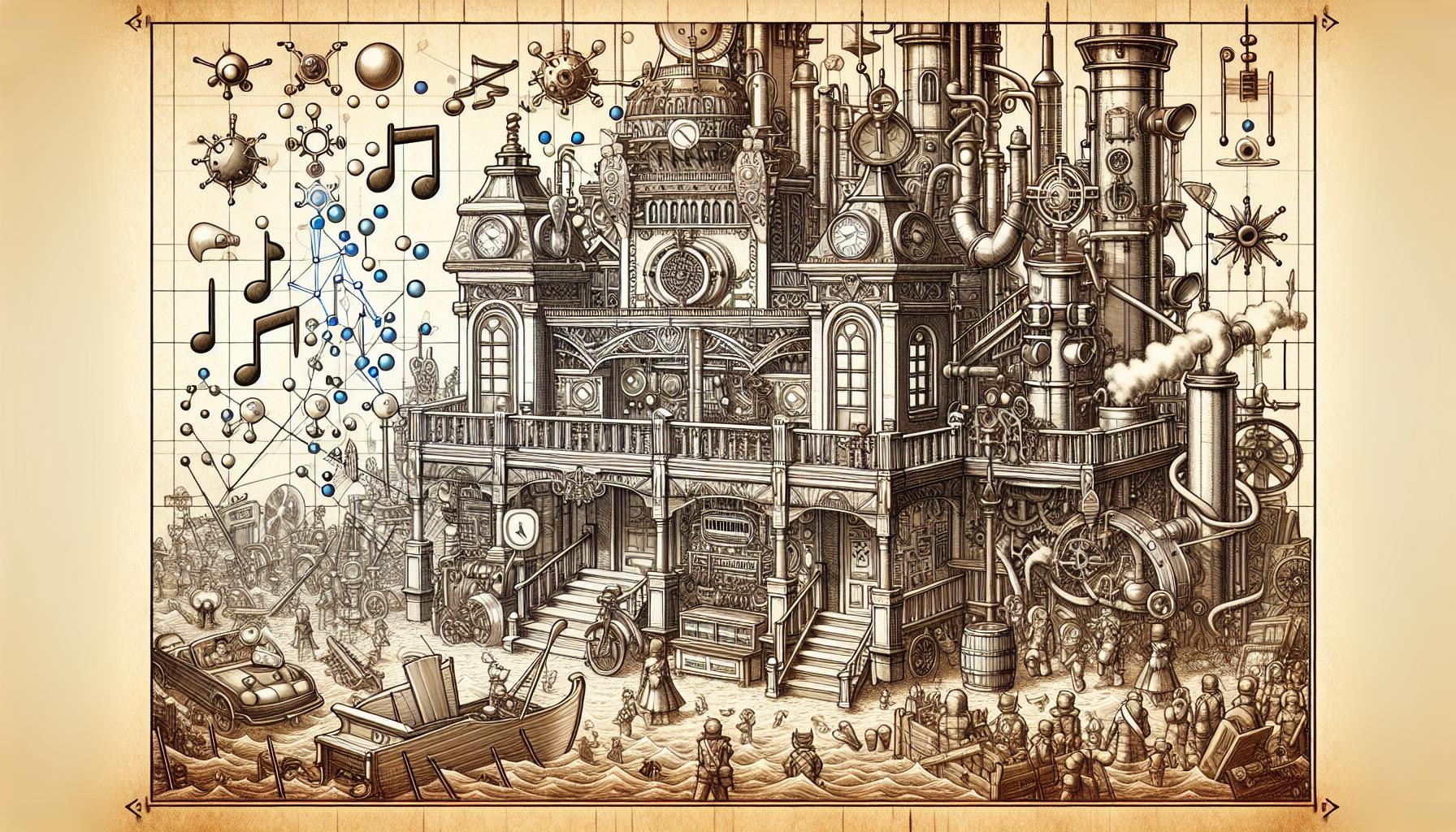The Best Fluffy Pancakes recipe you will fall in love with. Full of tips and tricks to help you make the best pancakes.

15 Best Point and Click Adventure Games of All Time: From Classic to Modern Gems (2024)
Growing up in the golden age of gaming, I’ve always had a special place in my heart for point-and-click adventure games. These timeless classics combine compelling storytelling with challenging puzzles that keep players engaged for hours. From solving mysterious crimes to exploring fantastical worlds, these games offer unique experiences that modern titles often struggle to replicate.
As someone who’s spent countless hours clicking through inventories and combining seemingly random objects, I’ll help you discover the absolute best point-and-click adventures ever created. Whether you’re a veteran of the genre or just starting your journey, these games represent the perfect blend of narrative excellence and intelligent puzzle design. I’ve carefully selected titles that have not only stood the test of time but continue to influence game developers today.
Key Takeaways
- Point-and-click adventure games had their golden age during the late 1980s through mid-1990s, with LucasArts and Sierra leading the industry with innovative titles
- Classic games like The Secret of Monkey Island, Day of the Tentacle, and Grim Fandango revolutionized the genre with features like dialogue trees, death-free gameplay, and professional voice acting
- Modern indie developers have revitalized the genre through platforms like Steam and GOG, introducing innovative storytelling techniques and enhanced visuals in games like Thimbleweed Park and Kentucky Route Zero
- Story-driven masterpieces like The Longest Journey and Gabriel Knight excel in creating immersive narratives through detailed world-building and character development
- The genre showcases remarkable artistic achievements through hand-drawn animation, distinctive art styles, and atmospheric sound design that enhance player engagement
The Golden Age of Point and Click Adventures
The late 1980s through the mid-1990s marked the pinnacle of point-and-click adventure games, with two major studios leading the charge. This era established the core gameplay mechanics and storytelling techniques that define the genre.
LucasArts Classics
LucasArts revolutionized adventure gaming with their SCUMM engine titles between 1987-1998. The Secret of Monkey Island (1990) introduced innovative dialogue trees and a death-free gameplay system. Other standout titles include Day of the Tentacle (1993) with its time-travel mechanics, Sam & Max Hit the Road (1993) featuring noir-comedy elements and Full Throttle (1995) combining adventure gameplay with action sequences. These games showcase LucasArts’ signature humor writing and contextual puzzle design.
- Hand-painted backgrounds created by professional artists
- Text parser interfaces evolving into point-and-click mechanics
- Multiple solution paths for complex puzzles
- Voice acting from professional performers
- CD-ROM technology enabling full motion video sequences
| Studio | Notable Series | Release Period | Key Innovation |
|---|---|---|---|
| LucasArts | Monkey Island | 1990-2000 | SCUMM Engine |
| Sierra | King’s Quest | 1984-1998 | AGI/SCI System |
Modern Point and Click Games Worth Playing

The point-and-click adventure genre experienced a remarkable revival in the 2010s through innovative indie developers and renewed interest from established studios. These modern titles blend classic gameplay mechanics with contemporary storytelling techniques and enhanced visual presentations.
Indie Game Renaissance
Independent developers sparked a creative resurgence in point-and-click adventures through platforms like Steam and GOG. Thimbleweed Park captures the essence of classic LucasArts games with its pixel art style and multiple playable characters. Kentucky Route Zero redefines narrative possibilities through its surreal art direction and atmospheric storytelling. Unavowed by Wadjet Eye Games combines urban fantasy with branching narratives and party-based gameplay mechanics. These indie titles demonstrate innovative approaches to:
- Narrative structure: Non-linear storytelling and multiple endings
- Art direction: Hand-drawn animations, rotoscoped characters, minimalist designs
- Gameplay mechanics: Integrated choice systems, streamlined interfaces, mobile optimization
- Episodic formats: Serialized storytelling with regular content updates
- Enhanced production: Professional voice acting, orchestral soundtracks, HD visuals
- Cross-platform compatibility: Simultaneous releases on PC, consoles, mobile devices
| Studio | Notable Release | Year | Key Innovation |
|---|---|---|---|
| Double Fine | Broken Age | 2014 | Split-screen narrative |
| Telltale Games | The Walking Dead | 2012 | Choice-driven storytelling |
| Revolution | Broken Sword 5 | 2013 | HD hand-drawn art |
Story-Driven Masterpieces

Story-driven point-and-click adventures excel in crafting immersive narratives through detailed world-building and compelling character development. These games prioritize storytelling depth while maintaining engaging gameplay mechanics.
Character-Rich Narratives
The Longest Journey stands out with its protagonist April Ryan guiding players through parallel universes of science and magic across 150 unique characters and 50 distinct locations. Grim Fandango draws inspiration from film noir and Mexican folklore, presenting Manny Calavera’s journey through the Land of the Dead with a cast of memorable skeletal characters. Broken Sword: The Shadow of the Templars weaves historical conspiracy theories through the relationship between American tourist George Stobbart and French journalist Nicole Collard.
Complex Puzzle Design
These narrative-focused adventures integrate puzzles that advance their stories without disrupting immersion. Gabriel Knight: Sins of the Fathers embeds its investigation mechanics within New Orleans voodoo mythology, requiring players to analyze clues, conduct interviews and solve supernatural mysteries. Syberia combines mechanical puzzles with its steampunk aesthetic, challenging players to repair intricate automaton devices while uncovering Kate Walker’s evolving narrative. Life is Strange incorporates time-manipulation mechanics into its puzzle design, allowing players to witness multiple outcomes of their choices while exploring complex social themes.
| Game Title | Notable Features | Release Year |
|---|---|---|
| The Longest Journey | 150 characters, 50 locations | 1999 |
| Grim Fandango | Film noir style, Mexican folklore | 1998 |
| Gabriel Knight | Voodoo mythology, Investigation mechanics | 1993 |
| Syberia | Steampunk puzzles, Automaton mechanics | 2002 |
| Life is Strange | Time manipulation, Choice-driven narrative | 2015 |
Artistic Excellence in Adventure Games

Point-and-click adventure games showcase remarkable artistic achievements through their visual presentations and audio design. These elements create immersive worlds that enhance storytelling and player engagement.
Hand-Drawn Animation
Classic adventure games feature meticulously crafted hand-drawn art styles that remain visually striking decades later. Games like Curse of Monkey Island display vibrant cel-shaded animation with 30 frames per second character movements that rival traditional animated films. Broken Age demonstrates modern hand-drawn techniques through its watercolor-inspired backgrounds and paper cutout character designs. Notable examples of distinctive art styles include:
- Machinarium’s detailed steampunk environments rendered in pencil sketches
- The rotoscoped animation in The Last Express capturing realistic character movements
- Deponia’s comic book-inspired visuals with bold outlines and rich color palettes
- Memory’s unique oil painting aesthetic bringing each scene to life
Atmospheric Sound Design
Audio elements in adventure games create rich atmospheric experiences that complement their visual artistry. Games like Grim Fandango incorporate jazz-noir soundtracks featuring 15 original compositions that enhance its Mexican folklore setting. Kentucky Route Zero demonstrates minimalist sound design through:
- Ambient environmental effects that shift based on player location
- Dynamic music transitions between scenes without jarring breaks
- Subtle audio cues highlighting interactive elements
- Character-specific sound signatures enhancing personality traits
- Binaural recording for immersive 3D soundscapes
- Procedurally generated ambient sounds
- Context-sensitive musical scoring
- Multi-layered environmental effects
Most Influential Point and Click Games
Point-and-click adventure games have shaped modern gaming through groundbreaking innovations in storytelling, puzzle design, and user interface mechanics. Here are the titles that revolutionized the genre and influenced countless games that followed.
Genre-Defining Titles
The Secret of Monkey Island (1990) established the foundation for modern dialogue systems and humor-driven narratives in adventure games. Sierra’s King’s Quest series (1984-1998) pioneered graphical adventures with its transition from text parsers to point-and-click interfaces. Myst (1993) transformed environmental storytelling through its immersive first-person perspective and atmospheric puzzle design. Notable gameplay innovations include:
- Inventory combination systems from Day of the Tentacle (1993)
- Character-switching mechanics in Maniac Mansion (1987)
- Non-linear storytelling paths in Indiana Jones and the Fate of Atlantis (1992)
- Context-sensitive cursors introduced by LucasArts SCUMM games
- Death-free gameplay design pioneered by Monkey Island
- Gabriel Knight: Sins of the Fathers (1993) introduced full motion video integration with traditional gameplay
- Grim Fandango (1998) implemented 3D characters in pre-rendered environments
- Broken Sword (1996) advanced cinematic storytelling through professional voice acting
- Sam & Max Hit the Road (1993) showcased dynamic character animation systems
- The Curse of Monkey Island (1997) elevated artistic presentation with hand-painted backgrounds
- Full Throttle (1995) integrated action sequences with traditional adventure mechanics
| Game | Year | Key Innovation |
|---|---|---|
| Maniac Mansion | 1987 | First SCUMM engine game |
| Monkey Island | 1990 | Dialogue tree system |
| Myst | 1993 | CD-ROM based graphics |
| Grim Fandango | 1998 | 3D character models |
| Broken Sword | 1996 | Cinema-quality animation |
Conclusion
Point-and-click adventure games have left an indelible mark on gaming history and continue to captivate players through their unique blend of storytelling and puzzle-solving. From the groundbreaking titles of the Golden Age to today’s innovative indie releases I’ve explored here there’s something special about these games that keeps drawing players back.
Whether you’re a longtime fan or new to the genre these titles offer unforgettable experiences that showcase the best of what point-and-click adventures can offer. I’ve shared my favorite picks but there are countless other gems waiting to be discovered in this rich and diverse genre.
The future looks bright for point-and-click adventures as new developers continue to push creative boundaries while honoring the traditions that made these games great in the first place.
